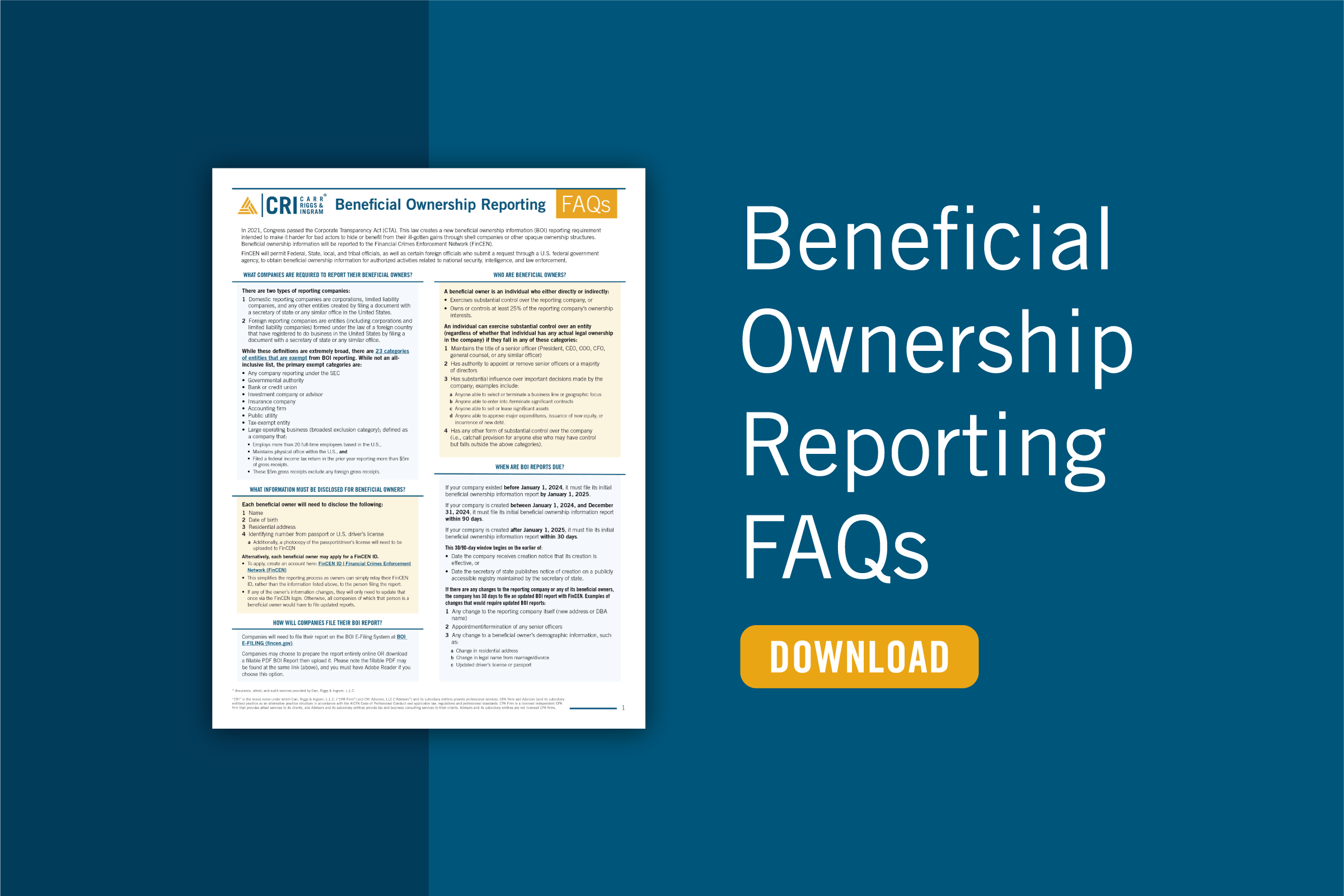Communicating with Your Advisor: A How-To Guide
Sep 21, 2022
The relationship you have with your accountant can be one of your most valuable connections, but only if you take advantage of it. You can capitalize on that relationship with a little prep work. Your accountant is here to help you achieve your business goals, and it’s a team sport, so they need your help. To encourage a successful working relationship, there are a few things you can do.
Define Their Role
For your accountant to be their most beneficial to your business, you must make room for them to play a role. Your one-on-one meetings are a great place for this. Do you want your accountant to help you solve short-term financial problems? They can only do that if they see the entire financial picture, so make sure you clean up your trial balance before your meeting and know your numbers. Do you want help refining a long-term goal or setting sales targets? Bring trends reports and industry benchmarks to discuss. Being prepared for meetings will save you time, of course, but more importantly, it will empower your accountant to do what they do best: address your complex business concerns.
Ask the Right Questions
Another way you can be proactive with your accountant is to ask questions. If you ask the right questions, you may learn about a new business opportunity you’d like to pursue or uncover a hidden weakness that would be easy to fix. A few good questions are:
- What new accounting standards should I be concerned about, and what changes are coming down the pipeline?
- What went smoothly during last year’s audit*, and in what areas did you spend the most time?
- Am I missing any tax saving opportunities?
- What jumps out at you when you review my trial balance?
- What changes have your other clients made that paid off in the long run?
- What do I need to think about before I do X?
- Is Y a good investment for me to make?
Learn the Lingo
Your accountant can be a great sounding board when you need help navigating the more difficult aspects of business ownership, but if you and your accountant can’t understand each other, your efforts will be in vain. Accountants use acronyms and terminology that don’t always effortlessly translate. Take a few moments to learn their lingo and ask for clarification when needed. To give you a head start, we created a list of some of the most common terms you’ll hear when meeting with your accountant.
And remember that your accountant may need some education on your lingo, too. Even if your accountant is familiar with your business, there may be some industry-specific jargon they don’t know. Give insight into your industry by explaining those terms.
Check In
We instinctively know that big business decisions (like merging with a competitor or opening a new retail location) will affect our finances, but smaller changes matter too. Unwinding decisions once agreements are reached can be difficult or even impossible, so bring your accountants into the conversation early. Early notice allows them to set up your transactions in the most beneficial way, including taking into account financial reporting and tax ramifications. For example, your accountant can help you optimize the timing of your equipment purchases for tax purposes, and they can explain how refinancing a loan will affect your financial statements and disclosures. Regular check-ins can be as easy as sending a quick email or picking up the phone for a short chat. Keeping your accountant informed about these big and small changes in your business will be well worth the up-front effort.
Be Honest
Candid honesty is the backbone of any good relationship — especially with your accountant. When you face an obstacle, bring it to the forefront so that you and your accountant can confront the problem. You should also speak up about any concerns or questions you have about your accountant’s recommendations. When you put your hesitance into words, your accountant can better explain their viewpoint. In some cases, you may even bring up an issue they hadn’t considered, and they can adjust their recommendations accordingly.
It’s ok if your honesty challenges your accountant’s professional opinion. A good accountant will appreciate the pushback. When business owners and their accountants embrace this sort of friction, they show that they trust each other and appreciate being challenged to grow.
CRI Advisors: In Your Corner
Your accountant should listen to your concerns and be rooting for you. At CRI, we are here to work with you, and you’ll know it from the first meeting. If you would like to make an appointment with one of our professionals, please reach out. We look forward to hearing from you.







































































































































































































































































































































































































































































